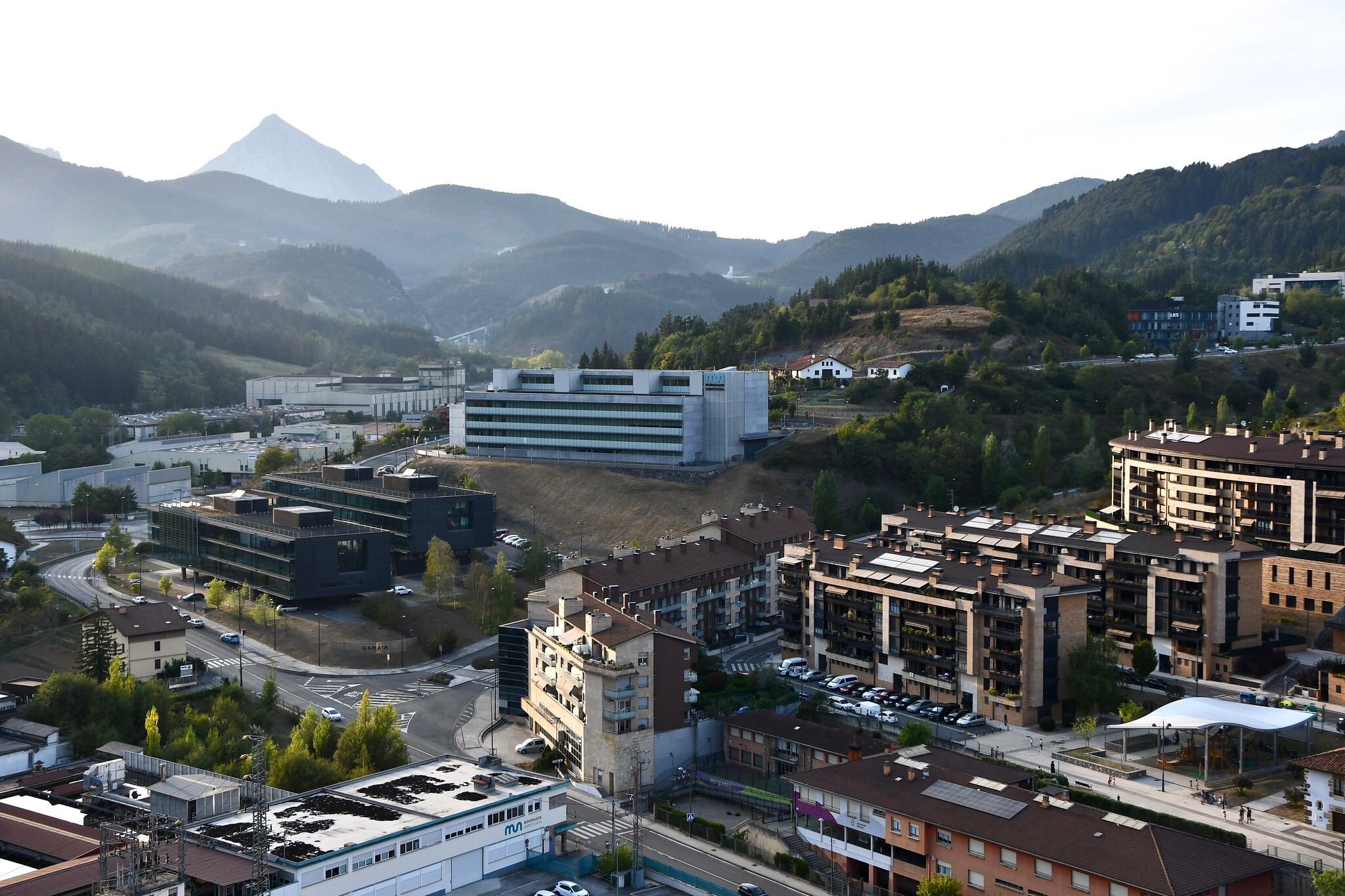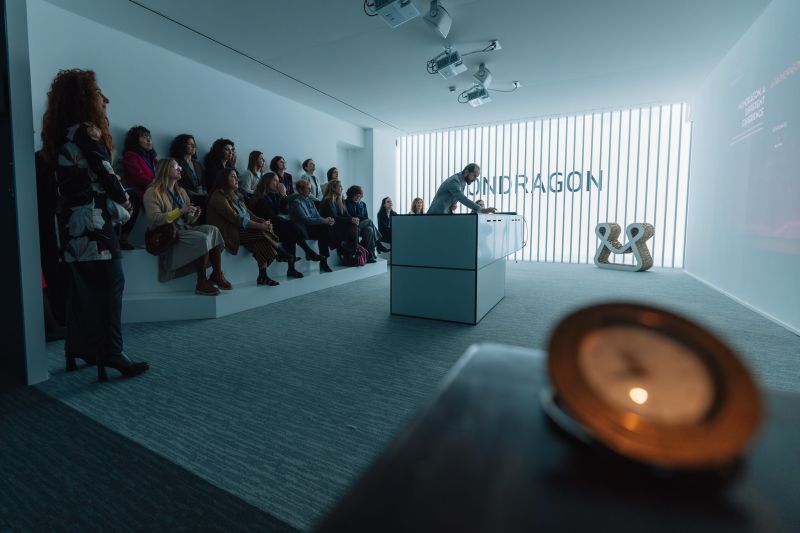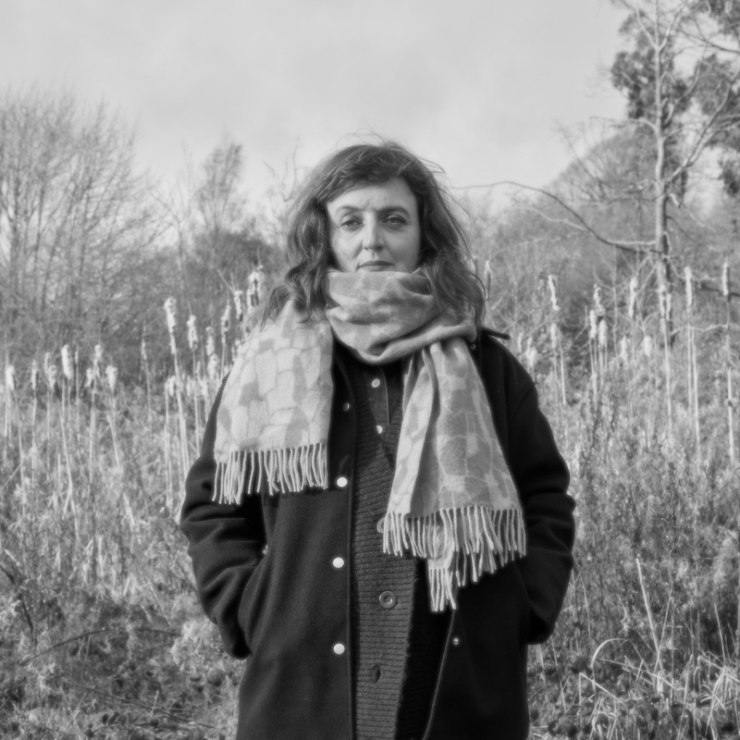
We are very excited to announce a new collaborative initiative between MONDRAGON, DemocracyNext, MIT Center for Constructive Communication (CCC) and Arantzazulab to learn and explore new ways to democratise workplace decision making.
In 2025, we will be exploring ways to put this in practice in MONDRAGON’s cooperatives to learn how the principles behind citizens’ assemblies – sortition (randomly selecting decision makers), deliberation, and rotation – can be applied in the context of cooperative decision making and governance. The goals are to help lead to a more engaged workforce and membership, as well as to result in better, more informed, and legitimate decisions in times of complexity.
Furthermore, we will test how new technologies can enrich deliberation processes and facilitate new approaches to decision making in cooperatives. We intend to learn from these practical experimentations to eventually extend the application to other cooperatives in MONDRAGON, and inspire other cooperatives – as well as businesses and membership-based organisations more broadly – to experiment in similar ways across the world.
The starting point
Theory suggests (based on Carol Pateman’s work in the 1970s on participation and democratic theory) that people who are involved in the workplace and play an active role in their organisations are also more active citizens in community life.
In the Basque region, cooperatives, and more specifically the cooperative group MONDRAGON, have had a crucial role in contributing to the region’s wellbeing, economic prosperity, and social capital. MONDRAGON is a group composed of 81 cooperatives organised in four business areas: industry, retail, finance, and knowledge. It is the biggest industrial group of the Basque territory. In 2023, the Corporation achieved over €11bn in sales, with a staff of more than 70,000 people, and a profit of €593m. These numbers show that cooperatives will continue to be important actors in building our future-proof societies and enabling resilient economies.
MONDRAGON is looking for ways to improve how all its cooperatives’ members and workers are involved and participate in decision making, while preserving the values and culture that make it a unique and exceptional economic model.
Similarly, reinvigorating employee engagement means increasing employee co-responsibility without losing sight of the ultimate goal of remaining competitive, all in times of profound change and unprecedented uncertainty.
For instance, one of the core values is “one worker, one vote”; this is the way that relevant decisions are taken in cooperatives. However, decision-making in times of complexity requires deep listening, deliberation, and weighing trade-offs. This means that new capabilities, mindsets, and structures need to be built to strengthen the existing ways and allow new types of collective decision making. This challenge is continually being addressed within MONDRAGON in different spaces – through research at the university, in spaces for reflection – but we will be taking a step further in this project.
Potential experimentation pathways
In this context, we believe there is the opportunity to learn from, experiment, and implement deliberative democracy principles and practices in MONDRAGON cooperatives. This project has two action streams:
- Bringing the principles of deliberative democracy (sortition, deliberation, rotation) into the cooperative space to improve deliberation and decision making, and ultimately increase worker participation and engagement. There could be different options for experimentation: understanding the decision-making process within cooperatives by mapping the existing bodies and decision-making structures and introducing improvements through deliberative principles; prototyping a cooperative assembly following deliberative democracy principles to respond to a complex challenge, etc.
- Introducing new technologies into deliberation and decision-making spaces. DemocracyNext and MIT CCC’s work on tech-enhanced citizens’ assemblies is relevant because it can help cooperatives like MONDRAGON ensure that diverse voices are meaningfully included in strategic decision-making. AI-assisted tools can help synthesise perspectives, surface common ground, and make deliberation more accessible, particularly for large cooperatives with complex organisational structures. In addition, these tools can support long-term institutional memory, tracking decisions and enabling continuous learning and adaptation. This approach envisions a future where cooperatives harness technology to deepen democratic engagement, making participatory governance more inclusive, scalable, and resilient. MONDRAGON could potentially become a sandbox for advanced experimentation, providing a business context and raising the level of ambition of this initiative.
In the coming months, we will activate a learning and reflection space with representatives from the different organisations in this collaboration to understand how all the knowledge and experience that each of us brings can be connected and to identify specific pilots in the MONDRAGON cooperatives to develop new knowledge in practice.

Involved stakeholders
These are the organisations that will be actively involved in this new collaboration:
Arantzazulab is a laboratory for innovation in democracy, created thanks to the support of different institutions, social agents and private companies. Its work consists of reflecting, researching and experimenting with new innovative approaches to deepening democracy and promoting collaborative governance. Its mission is based on embracing innovation and a transformative approach, fostering collaborations and connecting with advanced international knowledge, and grounding our work in our values and our culture.
Located in the Gandiaga Topagunea centre in Arantzazu, Basque Country, the aim of the lab is to create systemic change in democratic innovation by fostering new forms of collaborative governance between public institutions and civil society. To what end? To broaden the culture of collaboration and actively involve a diverse range of citizens in shaping public decisions and policies, thereby taking tangible steps to deepen and strengthen democracy.
MONDRAGON is the outcome of a cooperative business project launched in 1956. Its mission is encapsulated in its Corporate Values: intercooperation, grassroots management, corporate social responsibility, innovation, democratic organisation, education and social transformation, among others.
Organisationally, MONDRAGON is divided into four areas: Finance, Industry, Retail and Knowledge. It currently consists of 95 separate, self-governing cooperatives, around 70,000 people and 14 R&D centres, occupying first place in the Basque business ranking and tenth in Spain.
LANKI institute of co-operative research was created in 2001 to forge the cooperativism of the 21st century by working together and sharing experiences with the cooperatives of the Mondragon Experience. Three main lines of research define the activity at the institute: first, to analyse the Mondragon cooperative experience and the cooperative movement in general; second, to promote social and solidarity economics; and third, to promote social innovation and self-training. At Lanki academic knowledge and cooperative practice are closely intertwined and the focus is placed on the impact on the local and foreign cooperative movement through cooperative education, research and consulting, and dissemination activities.
DemocracyNext is an international foundation working to accelerate the spread of high-quality, empowered, permanent citizens’ assemblies. DemNext believes in a more just, joyful, and collaborative future, where everyone has meaningful power to shape their societies. DemNext works to shift who has power and how we take decisions in government and in institutions of daily life like workplaces, schools, and museums.
Grounded in rigorous research and extensive practice in the field, DemNext’s work to collaboratively grow and support the global deliberative democracy movement entails: creating infrastructure that scales the number of people with assembly know-how; building institutions that shift power; experimenting with innovations that push the boundaries of the field; creative storytelling that inspires people to learn and to act; and investments that enable systemic change.
The MIT Center for Constructive Communication (CCC) work combines the ancient wisdoms of human conversation with emerging digital technologies to promote shared understanding and trust rather than reinforcing the “side-taking” and binary thinking that too often divides us. Based at the MIT Media Lab and working closely with the non-profit Cortico, CCC brings together researchers in AI, computational social science, digital interactive design, and learning technologies with software engineers, journalists, political scientists, designers, and community organisations.
An important aspect of CCC is its commitment to reach both within and beyond academia to work closely with locally based organisations to launch pilot programs focused on building a culture of listening and dialogue that promotes a sense of shared understanding, empathy, and trust.
DemocracyNext and MIT CCC are jointly leading a Pop-Up Lab on Tech-Enhanced Deliberative Assemblies to harness powerful technologies to create positive, constructive, human-led systems shaped by the proven model of deliberative assemblies worldwide.


